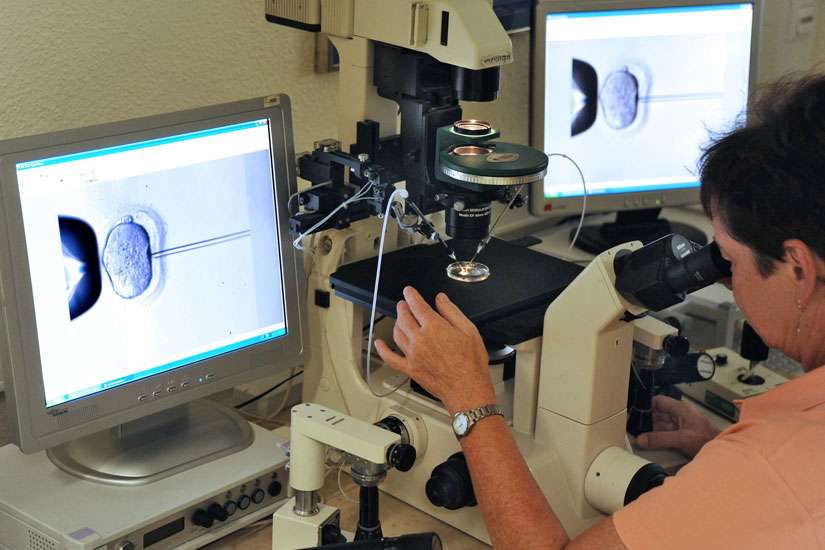If the measure also passes Britain’s upper chamber, the House of Lords, England would become the first country to legalize the procedure.
“This is world-leading science within a highly respected regulatory regime and for the many families affected, this is light at the end of a very dark tunnel,” said Health Minister Jane Ellison.
Prime Minister David Cameron voted in favor of the technique, which has provoked fierce ethical debate in Britain and elsewhere. Senior church figures called for the procedure to be blocked.
But if the House of Lords approves the bill, the first three-person baby could be born as soon as next year.
The technique could help women in England who have lost babies to mitochondrial disease.
Mitochondria are tiny compartments inside nearly every cell of the body that convert food into usable energy. They have their own DNA that does not affect characteristics such as appearance.
Defective mitochondria, which are passed down only from the mother, lead to brain damage, muscle wasting, heart failure and blindness. The controversial new technique uses a modified version of in vitro fertilization — the process by which eggs are removed from ovaries and mixed with sperm in a laboratory dish — to combine the DNA of the two parents with the healthy mitochondria of a donor woman. The technique has been dubbed in the media as the three-parent baby technique.
Last week, the Catholic and Anglican churches in England said the idea was neither safe nor ethical, not least because it involved the destruction of embryos.
“The human embryo is a new human life, and it should be respected and protected from the moment of conception,” said Catholic Bishop John Sherrington. “This is a very serious step which Parliament should not rush into taking.”
The Rev. Brendan McCarthy, Church of England adviser of medical ethics, told the BBC: “We need to be absolutely clear that the techniques that will be used will be safe and we need to be absolutely sure that they will work.” He said the ethics of the issues should be properly discussed.
Anglican Bishop Lee Rayfield of Swindon said the procedure was a “massive step” and some of his colleagues were concerned about how it was going to be regulated once it was approved. “If the safeguards are there,” he said, “the Church of England will be behind this.”
Sharon Bernardi of Sunderland, who has lost seven children, supports the new DNA plan. “I would ask the Church of England desperately to please look at the bigger picture and look at the children who have been affected by this dreadful disease,” she said.
About one in every 6,500 babies is born with mitochondrial disease, which can be fatal.


